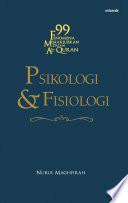
Buku Pintar Sejarah Islam
Sejarah adalah ingatan. Ia merekam bagaimana bangsa-bangsa mengalami kemajuan dan kemunduran, bagaimana negara-negara berdiri dan jatuh; bagaimana dakwah-dakwah gagal dan berhasil, bagaimana peradaban-peradaban tumbuh dan runtuh, bagaimana para pemimpin tampil gemilang dan hilang. Seperti itulah yang akan kita saksikan tentang Islam dalam karya ini. " Buku ini memaparkan sejarah Islam dan menjelaskannya dari sudut pandang Islam: sejak masa Nabi Muhammad, Khalifah Empat, Dinasti Umayah, Dinasti Abbasiyah, hingga masa kini; sejak muncul di Makkah hingga merekah di penjuru dunia. Diterbitkan oleh penerbit Serambi Ilmu Semesta " (Serambi Group)
- ISBN 13 : 6021791959
- ISBN 10 : 9786021791950
- Judul : Buku Pintar Sejarah Islam
- Pengarang : Qasim a. Ibrahim dan Muhammad A. Saleh,
- Kategori : Religion
- Penerbit : Serambi Ilmu Semesta
- Bahasa : id
- Tahun : 2014
- Halaman : 1218
- Google Book : https://play.google.com/store/books/details?id=1s9nCwAAQBAJ&source=gbs_api
-
Ketersediaan :
Ia merekam bagaimana bangsa-bangsa mengalami kemajuan dan kemunduran, bagaimana negara-negara berdiri dan jatuh; bagaimana dakwah-dakwah gagal dan berhasil, bagaimana peradaban-peradaban tumbuh dan runtuh, bagaimana para pemimpin tampil ...









